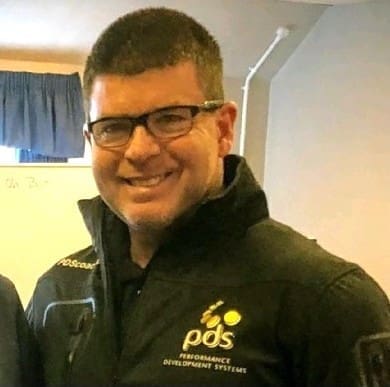Characteristics of High Performance Athletes

Mark Bennett MBE has spent the last 30 years developing robust and scalable strategies and tools to help organisations, teams and individuals maximise the performance potential of themselves and the people they are influencing.
Mark hasn’t just developed the ‘how to’ tools and strategies to increase engagement, learning and performance; he has designed powerful interventions that support the change required to embed the behaviours and cultures that maximise performance.
He has named this holistic approach the Performance Development Systems (PDS). PDS focusses on two key elements:
- Making people better influencers
- Supporting the transition of change required to live by the principles & behaviours needed to be a great influencer
For more information on Marks services & a host of free resources check out his website PDScoach.com
It is not enough to be motivated if you are going to fulfil your talent. You must also be able to show immense commitment, where the promises you make to yourself and others you follow through with and do what you say you will do. Especially, through the tough times.
In this episode, Mark Bennett MBE and I go on to discuss the differences in commitment levels between leisure and high performance athletes. How coaches can get the best out of their athletes, and parents can best support talented children. Mark’s tagline – Performance is a Behaviour not an Outcome is also debated.
Key Learning Points:
- Whether you are a leisure or a high performance athlete, it has nothing to do with technical ability, physicality or skill, it is all to do with your behaviours and the attitude you take to your craft each and everyday.
- A high performance athlete is somebody that will do what they need to do to be the best they can be supervised or unsupervised 24/7.
- The high performance athlete will ask themselves questions such as “What do I need to do?“ How much sleep do I need?” “What am I going to eat the next day? “What’s my plan for the week ahead?”
- For high performance coaches, they’ll be looking at the everyday behaviours of the athlete and won’t get caught up in their technical ability in the moment of what they see.
- The coach will seek to understand the athletes everyday behaviours, to understand where their mindset is and what their commitment is to their goal.
- On learning from mistakes, we expect people to make effective decisions, under different levels of pressure without getting caught up in the outcome but often they don’t get taught how to reflect and evaluate.
- For parents, when considering being the best parent that you can be to support your child, have you pre agreed certain behaviours for yourself as a parent, and for your child that you both agree on?
- For parents after training or matches, it’s not about asking questions about did you win or how did you do or how many minutes did you play on the pitch? It is about asking “did you enjoy the match?” “What was the most challenging thing that you experienced today?” “What did you learn today?”
Connect with Mark Bennett MBE
LinkedIn, Twitter, YouTube and Facebook
Performance Development Systems, PDS Coaching Website
Connect with David Charlton
Other Resources to Help You
Podcast Ep36: David Charlton – How to Improve Your Intensity when Training and Competing
Podcast Ep15: Nick Grantham – Essential Elements of Rest and Recovery
Podcast Ep02: Steve Judge – How to Deal with Adversity
Blog: Developing your Mental Game in your Downtime
Click the button below to join The Sports Psychology Hub a Facebook group that David hosts to help ambitious athletes, serious sport coaches, sporting parents, sports psychologists and mental game coaches to support each other.
IF YOU ENJOYED TODAY'S SHOW PLEASE SHARE
SUBSCRIBE AND LISTEN ON YOUR FAVOURITE AUDIO PLATFORM
Also, kindly consider taking the 60-seconds it takes to leave an honest review and rating for the podcast on iTunes, they’re extremely helpful when it comes to the ranking of the show and we read every single one of them!

Best Wishes
David Charlton
Global Sports Psychologist who is located near Newcastle Upon Tyne, UK and willing to travel Internationally. David also uses online video conferencing software (Zoom, Facetime, WhatsApp) on a regular basis and has clients who he has supported in USA, Canada, South America, UAE, Australian and New Zealand.
Managing Director – Inspiring Sporting Excellence and Founder of The Sports Psychology Hub. With over 10 years experience supporting athletes, coaches, parents and teams to achieve their goals, quickly.
T: +44 7734 697769








